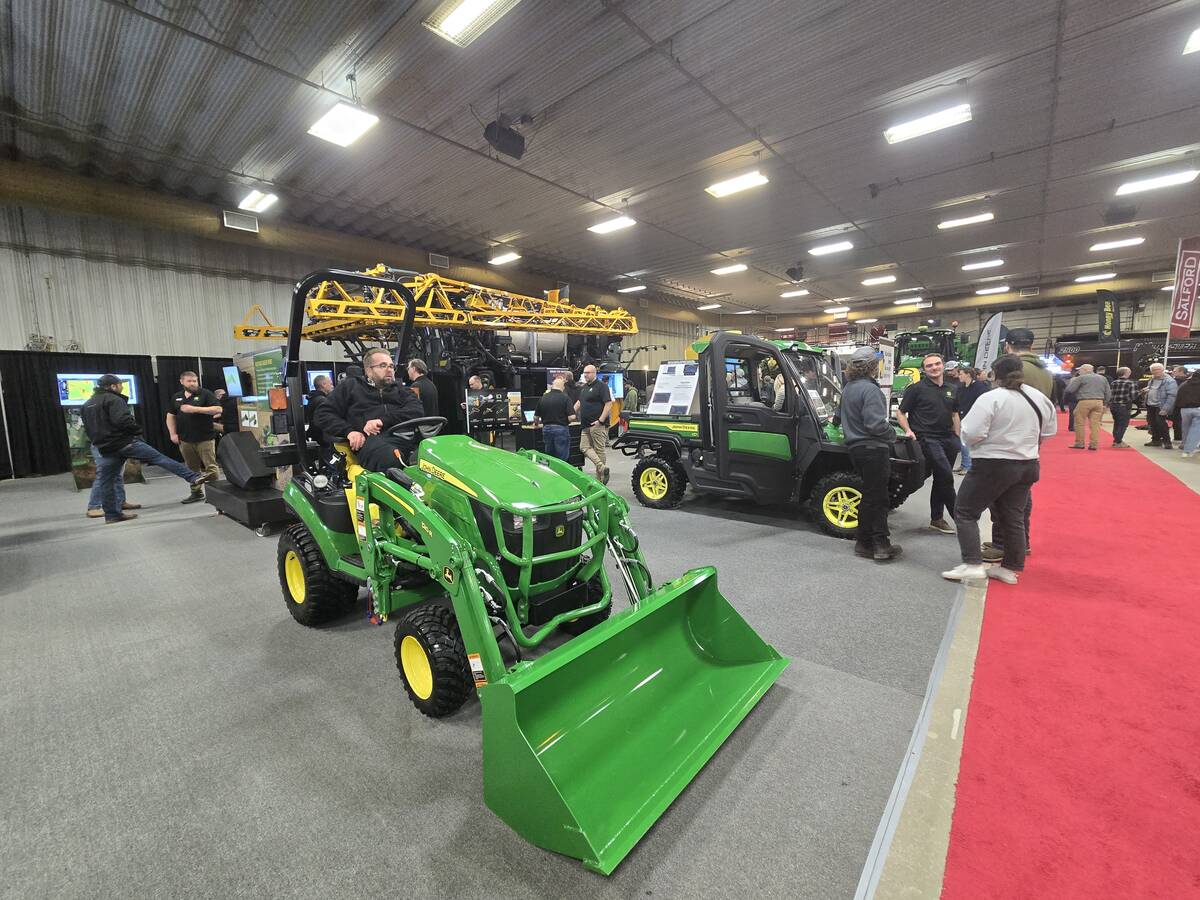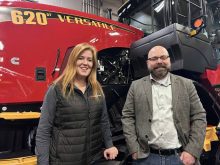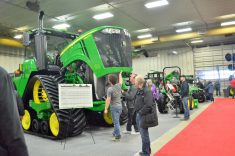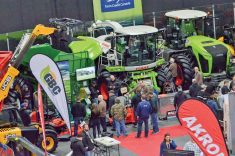The Canadian Association of Fairs and Exhibitions (CAFE) hopes its Animal Care Workshop program will set a new standard for animal care at agricultural fairs.
CAFE is organizing workshops across the country to spread the message about their new best practices for animal care.
“Our goal with this project is to develop a national guideline for animal care at fairs and exhibitions and to offer training on these guidelines to lead event organizers,” says Angelo Leo, CAFE program coordinator.
Read Also

Manitoba John Deere dealers plan merger
Two retail dealership chains handling John Deere farm equipment in Manitoba say they plan to merge, bringing 13 locations under one organizational umbrella.
But it’s more than just about a training event organizers; it’s about building public trust, says Leo.
“There is a need to inform the public about animal handling at public events,” Leo says.
Funding for the project was secured in 2021 with a grant from Agriculture and Agrifood Canada’s AgriAssurance Program—National Industry Association component.
Developing the best practices through consultations with Canadian animal care experts was the first stage of the project. The second part of the program was developing the course materials for the workshops.
The final stage of the project began late last year when CAFE hit the road with their workshop tour. That tour lands in Brandon at the Provincial Exhibition Building on March 3. The Manitoba Association of Agricultural Societies is hosting the Brandon event.
The practice of animal care in agriculture has evolved over the years.
“This is basically our next step in our plan to make sure we are communicating what needs to be done properly,” says Leo. “This is basically an update to the work we’ve been doing for the past eight years.”
But in the years prior to the development of this program, Leo says there was a clear lack of understanding among some people working with agricultural fairs. The problem was especially worrisome with smaller fairs that rely heavily on inexperienced volunteers.
To reach those smaller fairs, the workshops are being offered in smaller agricultural centres rather than big cities.
“We’re really trying to hit places that are not usually hit to make sure that everybody gets the proper training,” Leo says.
There is no charge to attend the workshops, but a registration form that can be found on the CAFE website must be filled out. There is even funding of up to $300 available for up to 20 people who are travelling from outside of a 50-km radius of the event to recoup their travel expenses.
Event organizers are being asked to bring their site map so that instructors can work with them on issues specific to their events. And while the workshops are geared towards fair organizers and people who work for or volunteer at agricultural fairs, they are also open to people not involved in the industry.
“We want to make sure that we are dedicating ourselves to making this as accessible as possible for the public,” says Leo, adding that he’d love to see some farmers show up. “We’re trying to really connect the agricultural community, farmers, and the actual fairs to ensure those bridges are being built with a proper foundation.”
While the workshop is currently being used as a voluntary tool to promote these best practices as guidelines for animal care, Leo says they hope to develop them into a mandatory code that the industry will adopt.
“That is what we’re aiming for, but whether or not it happens is determined by how it’s received by the provinces.”
The workshops are running through March 31st, which is when the current funding dries up. After that, things are still up in the air. Leo says the hope is that the affiliated provincial organizations will take the ball and run with it, but without the funding, there may be a charge for those interested in participating. Any future iterations of the workshops will be continually updated to include the latest, most relevant information regarding animal treatment.
The CAFE website says the workshops are full-day events, but Leo says there are about four hours of actual instruction. The workshops are divided into four parts: situational awareness, a framework for an animal care program, operational excellence and transportation.


















